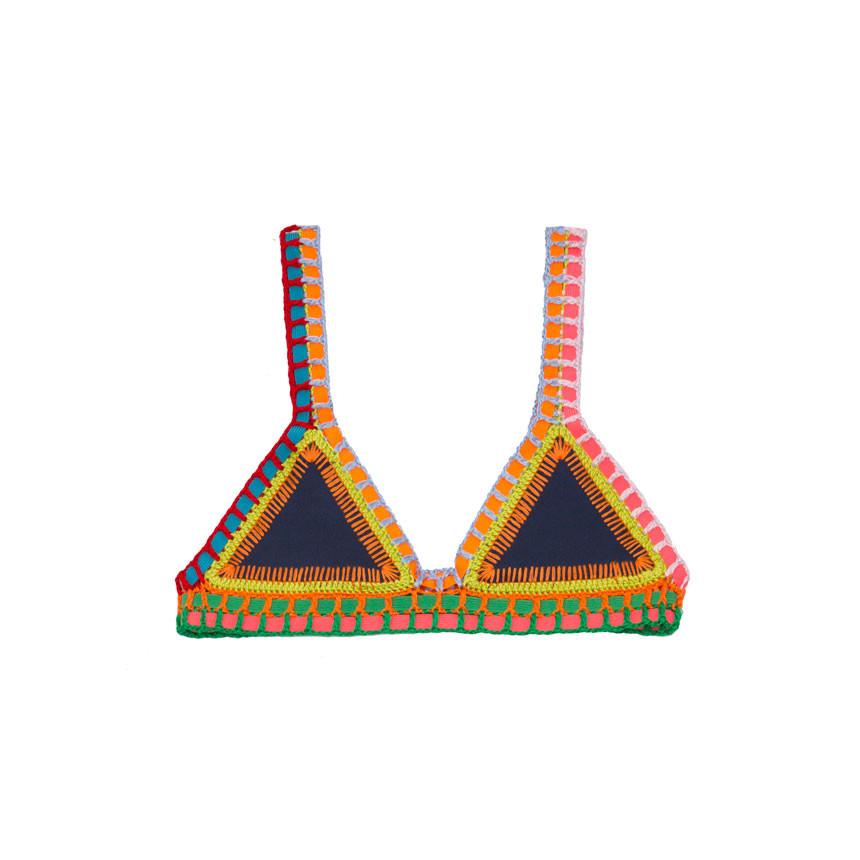Who owns the copyright to a crocheted bikini? Legal battle waged by Kiini maker takes a turn
The woman who took the fashion world by storm with a crocheted bikini called the Kiini fought retailers that sold different versions of the swimwear with lawsuits. She reportedly had $9 million in sales by 2015.
The street artist who says she was first to create the crocheted bikini has created legal headaches for the Kiini maker, though her nonexclusive licensing deal with a different swimwear supplier will bring her only $7,700 in 2019.
The New York Times has the story of Kiini maker Ipek Irgit and street artist Maria Solange Ferrarini, who is known in her Brazilian beach town as the bikini lady.
Irgit began selling the swimsuit she called a Kiini in 2013, a year after she visited the beaches of Brazil. Irgit had the bikinis made in China for $29 each and charged $285 retail.
After sales took off, Irgit acted on her lawyer’s advice and sought copyright protection for the Kiini, according to the Times article. She filed her first lawsuit in October 2015 against Victoria’s Secret, accusing the company of copyright infringement for its similar bikini. The suit settled in March 2017.
In April of the next year, Irgit filed a new lawsuit against Neiman Marcus and two swimwear companies that alleged unfair competition and trade dress violations. The suit was amended to add new swimwear companies, including PilyQ, a company owned by a woman whose husband is lawyer Jason Forge.
Forge is a law firm partner who represented students in a class action against Trump University. PilyQ sells its Platinum brand crochet swimwear to Neiman Marcus.
Forge first got wind of the litigation when Neiman Marcus received a cease and desist order form Kiini in April. Forge contacted lawyers for Victoria’s Secret and learned of rumors that there was a bikini maker from Brazil whose work was not credited. Forge found Ferrarini online and negotiated with the artist, who consulted her own lawyer before reaching a deal.
Ferrarini was paid about $5,100 in 2018 and will earn $7,700 in 2019, according to the New York Times.
Also in April, a former business associate of Irgit’s, Sally Wu, had a falling out with Irgit. Over dinner with a friend, Wu said Irgit’s bikini was a replica of one she brought home from Brazil. Wu’s friend knew people at Neiman Marcus, and he relayed the information.
Forge contacted Wu after he learned about her from a contact at Neiman Marcus. After a meeting, Wu gave him her hard drives. He found a photo of the prototype swimsuit, and it was signed by the street artist, the article reports.
The legal tide quickly changed. Forge filed an unfair trade practices suit against Irgit and Kiini on June 13. A month later, Irgit’s lawyers withdrew from Irgit’s case against Neiman Marcus. Irgit dropped the suit.
Write a letter to the editor, share a story tip or update, or report an error.



